We’ve all heard that yoga and meditation are good for our mental health.
But does science really support those claims? And how does it all work?
Firstly: Yes. Science absolutely does support the idea that dynamic meditative practices (like yoga) and other forms of meditation (like mindfulness) can support good mental health, and even help to treat the symptoms of a number of mental health conditions — including depression and anxiety.
And to give a short answer to the question of how it actually works…well, in lots of different ways. From emotional release to shifting mental states, and even changing the physical structures of the brain.
Mindfulness Has Powerful Mental Health Credentials
I’m a big fan of mindfulness techniques, and weave them into every single class I teach. Jon Kabat-Zinn is known as the person who brought mindfulness to the west, and introduced it to clinical settings. I’ve taken his intensive Mindfulness Based Stress Reduction (MBSR) training twice — each time, I was reminded of how important it is to understand the why and how behind mindfulness practices.
When it comes to teaching or practicing mindfulness, the why is simple: it reduces stress and anxiety, eases the symptoms of depression, and builds a toolbox of actionable skills to help stay calm and grounded in any situation.
The how is a little more complicated But I’ll break it down into some quick points:
Mindfulness improves overall relaxation, which helps to improve sleep, reduce anxiety, and make overwhelming feelings less intense
It also improves attention and concentration — which can help to boost self-esteem and your belief in your own ability to learn, grow, and handle challenges
It does all of this partly by providing a way to disengage from overthinking; you learn how to focus on what’s right in front of you, or on the sensations you’re feeling, which makes the mind less busy and noisy.
With regular practice, simple mindfulness technique can create — and then strengthen — new pathways in the brain which make it easier and easier for you to access calm, positive, or pragmatic thoughts; and make it easier for you to become aware of the present moment, even when you’re stressed out
Mindfulness gives you confidence in the knowledge that you have the skills to deal with whatever you need to deal with, from moment to moment and day-to-day
Would you like to explore mindfulness — and other yoga, meditation and pranayama practices — with the support of a fabulous group of likeminded people? Join the YFTSR free community on Facebook, at Beyond the Sticky Blue Mat. We’d love to have you!
Beyond Mindfulness
It’s not only mindfulness that has been of interest to mental health researchers in recent years. Studies have found that:
Breathing exercises, known as Pranayama, can reduce both perceived stress levels, and the measurable levels of stress hormones, including cortisol. (You can get started by reading an Overview of Pranayama Practices!). Pranayama plays a significant roll when it comes to mental health, so much so I’m writing a full blog on it.
Regular yoga practice improves mood, the ability to regulate emotions, and overall mental wellbeing
It can actively support people with depression, helping to manage symptoms and develop self-help tools
Meditation (including, but not limited to, mindfulness) can act as a natural method of pain relief, and help manage addiction.
Any yoga or meditation practice can have a positive impact on your mind. But working with a mental health aware teacher — particularly if you’re struggling at the moment — will help to ensure you get what you need from your practice.
How Can YOU Benefit from All of This?
One of the most fabulous things about yoga and meditation is that anyone can do it, anywhere, at any time. If you start practicing regularly on your own at home, you will experience changes in the way you think and feel.
But the tricky thing is to stay consistent. Regular practice really is key to getting deep and feeling the most profound changes — and it’s easy to give up when you’re practicing on your own.
Support and motivation from an experienced, knowledgeable teacher makes all the difference. If you attend classes (either in-person or online) you’ll have the added benefit of a community of fellow students to keep you going on those days when you don’t feel like rolling out your yoga mat, or settling onto your meditation cushion.
It’s a constant privilege for me to support people in this way. My road to teaching was a long one; I lived and studied in ashram settings for years, fully immersed in the yogic lifestyle and philosophy. It wasn’t always easy — but it was exactly what I needed, and that depth of training allows me to teach authentic, powerful (but gentle) yoga.
Life isn’t always easy. Not least because our own brains, thoughts, and feelings can be our biggest challenges at times. But yoga and meditation really can help; I promise it’s not just a trend. It’s real, and it’s worth every moment you’re able to give to your practice.
PLEASE NOTE: If you would like to experience these practices with me, I will be teaching them as part of your daily practice during my upcoming Embrace The Stillness Within You Yoga and Sacred Sound retreat this October. Click here for more information.
And if you would like personalised coaching/mentoring to calm your busy mind and rid yourself of overwhelm click here and let us have a chat to see if it is the right fit to work together.
Any questions, click here and let me know.
Stay happy and healthy!
Chetana
PS: If you enjoyed this blog click the like button below then share it with those you care for who can also enjoy and benefit from it. 😊

